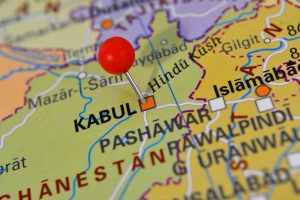
Sabahat Ali, Mexico
Your whole world warps the moment you hold your new-born for the first time, and the interstellar expanse of existence suddenly pales in comparison. In that single second, a universe of love explodes in your soul for this tiny little thing, and you know you would do anything to protect it.
But few things are more torturously devastating than losing your new-born just days later.
And yet, for an Ahmadi Muslim couple from Bangladesh, that was just the beginning of their heart-breaking trauma. Soon after the untellable agony of burying their 3-day old princess in the ground, they received earth-shattering news.
A few hours after the burial, their angel’s infantile body was callously dug up from her grave by an anti-Ahmadiyya coterie of fanatics, who coldly left the blameless body at the side of a road.
To them, this 3-day-old girl was an infidel of such intolerable proportions that she did not even deserve a grave in a cemetery of Muslims. Her only crime was being born an Ahmadi Muslim, a minority group within Islam who believe in the philosophy of ‘Love for All, Hatred for None’, and who practise Islam according to the way of the Prophet Muhammad (sa). A picture of the infant’s body on a straw mat is being circulated on social media.
But this is nothing new for the Ahmadiyya Muslim Community; a community which has endured persecution in all conceivable and inconceivable forms, at the behest of some clerics who urge their followers under the false notion that the reward for perpetrating such heinous acts is paradise.
The unhinged jaws of depravity know no bounds.
The tragic irony of it all is only further amplified by the fact that in Islam, taking a single innocent life is tantamount to massacring all of humanity.
Ask any parent in the world if they have ever held anything more innocent than their new-born. And yet, the viciousness of such extremists is laid bare by the fact that even her death was not enough to quench their insatiable, weltering void of malice and hate. They would not let her rest. Such unspeakably heinous actions reveal the primitive and vile nature of those who carry them out.
Islam has always been a religion of peace. That these people attribute their actions to Islam is an untruth of ineffable proportions.
There is not a single teaching of Islam which calls upon Muslims to dig up the graves of people with different beliefs and throw them to the roadside. The Prophet Muhammad (sa) was a man who invited visiting Christians to offer their prayers in his own mosque; a man who stood up when the funeral procession of a Jewish person was passing by, a man who would say “Peace be upon you all, O people of the grave!” whenever he walked passed a graveyard. In fact, one of the great revolutions brought about by the Holy Prophet Muhammad (sa) in the world was that even in a state of all-out-war, no form of bodily mutilation or disrespecting the dead body of the enemy was ever permitted, and all such savage customs were condemned and abolished under his guidance.
And so, it is all the more terrible that today’s self-styled Muslims who claim to sit on the throne of Islamic scholasticism are phenomenally opposing the teachings of Islam and its founder, the Prophet Muhammad (sa).
The truth is that the entire corpus of authentic Islamic literature – from the Holy Qur’an to the sayings and actions of the Holy Prophet Muhammad (sa) – glaringly confute and stand against religious persecution in all of its forms. For the last century, the Ahmadiyya Muslim Jama’at has championed religious freedom all over the world, and while the relentless persecution of extremists stings beyond expression, it is through igniting the candles of education and kindling the embers of love for God and His creation that we will always march onward.
About the Author: Sabahat Ali is a graduate from the Canadian Ahmadiyya Institute of Languages and Theology. He currently serves as an Imam of the Ahmadiyya Muslim Community in Mexico, and is a regular contributor for the Review of Religions.




Add Comment